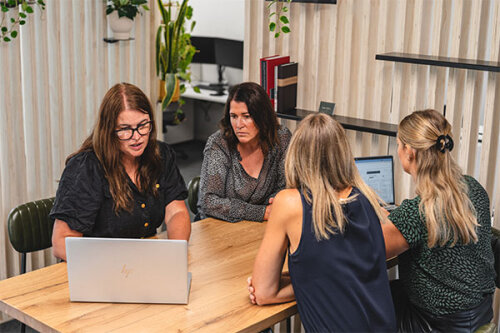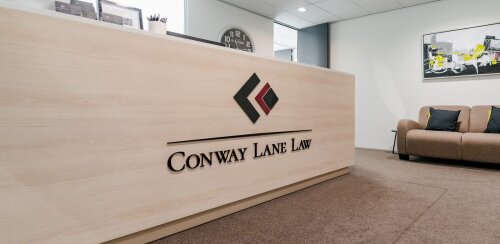Best Nursing Home Abuse Lawyers in New Zealand
Share your needs with us, get contacted by law firms.
Free. Takes 2 min.
Or refine your search by selecting a city:
List of the best lawyers in New Zealand
About Nursing Home Abuse Law in New Zealand
Nursing home abuse in New Zealand refers to any harm or mistreatment of elderly residents in care facilities, which may include physical abuse, emotional abuse, sexual abuse, financial exploitation, or neglect. The well-being of the elderly is protected under various laws that ensure their rights and dignity are upheld within nursing homes. The legal framework is designed to hold abusive parties accountable and provide recourse for victims and their families.
Why You May Need a Lawyer
There are several situations where an individual may require legal assistance regarding nursing home abuse. These include discovering signs of abuse or neglect in a loved one, facing resistance or backlash from a nursing home when raising concerns, needing to navigate the complexities of the healthcare and legal systems, or seeking compensation for damages and suffering caused by the abuse. A specialized lawyer can provide guidance, represent your interests, and help hold responsible parties accountable.
Local Laws Overview
New Zealand has specific laws and regulations aimed at protecting the elderly in nursing homes, such as the Crimes Act 1961, which addresses physical violence and neglect. Additionally, the Health and Disability Commissioner ensures that the Health and Disability Services Consumers' Rights are upheld, which include the right to respect, fair treatment, and dignity. Complaints can be lodged with the Health and Disability Commissioner if these rights are infringed upon. The Protection of Personal and Property Rights Act 1988 also provides legal mechanisms for ensuring the protection and well-being of vulnerable individuals.
Frequently Asked Questions
What constitutes nursing home abuse?
Nursing home abuse can manifest in different forms, including physical harm, emotional maltreatment, sexual misconduct, financial exploitation, and neglect in caregiving.
How can I identify signs of nursing home abuse?
Common signs include unexplained injuries, sudden changes in behavior, unsanitary living conditions, unexplained financial transactions, and fearfulness around caregivers.
What should I do if I suspect nursing home abuse?
Document your observations, report your concerns to the nursing home management, and contact relevant authorities such as the Health and Disability Commissioner for guidance.
Can I file a lawsuit against a nursing home?
Yes, if there is sufficient evidence of abuse or neglect, a lawsuit can be filed against the nursing home or specific staff members responsible for the abuse.
Who enforces nursing home regulations in New Zealand?
The Health and Disability Commissioner and the Ministry of Health oversee nursing home regulations and handle complaints and investigations related to abuse.
Are there time limits for taking legal action?
Yes, there are statutory time limits for filing claims related to personal injury and abuse, typically within three years from the date of the incident.
What kind of compensation might be available?
Compensation can include damages for medical expenses, pain and suffering, emotional distress, and punitive damages if warranted.
Can a nursing home resident be moved if abuse is suspected?
Yes, arrangements can be made for the immediate relocation of the resident to ensure their safety, pending further investigation and legal action.
Is financial exploitation common in nursing homes?
Unfortunately, financial exploitation is a prevalent form of abuse, often involving unauthorized transactions, theft of property, or manipulation of financial decisions.
How can I find a lawyer specializing in nursing home abuse?
Contact the New Zealand Law Society for referrals, or search for legal services and firms that focus on elder law and personal injury.
Additional Resources
Consider reaching out to the following organizations for assistance with nursing home abuse issues:
- Health and Disability Commissioner
- Nga Ngaru rāua ko One Foundation for elder advocacy
- Age Concern New Zealand
- New Zealand Law Society
- Ministry of Health
Next Steps
If you need legal assistance regarding nursing home abuse, start by gathering all relevant documentation, including medical records and any correspondence with the nursing home. Contact a lawyer who specializes in elder law or personal injury for an initial consultation to discuss your situation. Report the abuse to the appropriate authorities and continue to advocate for the well-being and dignity of the affected individual. Consider utilizing local resources and support networks to help manage the situation effectively.
Lawzana helps you find the best lawyers and law firms in New Zealand through a curated and pre-screened list of qualified legal professionals. Our platform offers rankings and detailed profiles of attorneys and law firms, allowing you to compare based on practice areas, including Nursing Home Abuse, experience, and client feedback.
Each profile includes a description of the firm's areas of practice, client reviews, team members and partners, year of establishment, spoken languages, office locations, contact information, social media presence, and any published articles or resources. Most firms on our platform speak English and are experienced in both local and international legal matters.
Get a quote from top-rated law firms in New Zealand — quickly, securely, and without unnecessary hassle.
Disclaimer:
The information provided on this page is for general informational purposes only and does not constitute legal advice. While we strive to ensure the accuracy and relevance of the content, legal information may change over time, and interpretations of the law can vary. You should always consult with a qualified legal professional for advice specific to your situation.
We disclaim all liability for actions taken or not taken based on the content of this page. If you believe any information is incorrect or outdated, please contact us, and we will review and update it where appropriate.
Browse nursing home abuse law firms by city in New Zealand
Refine your search by selecting a city.














